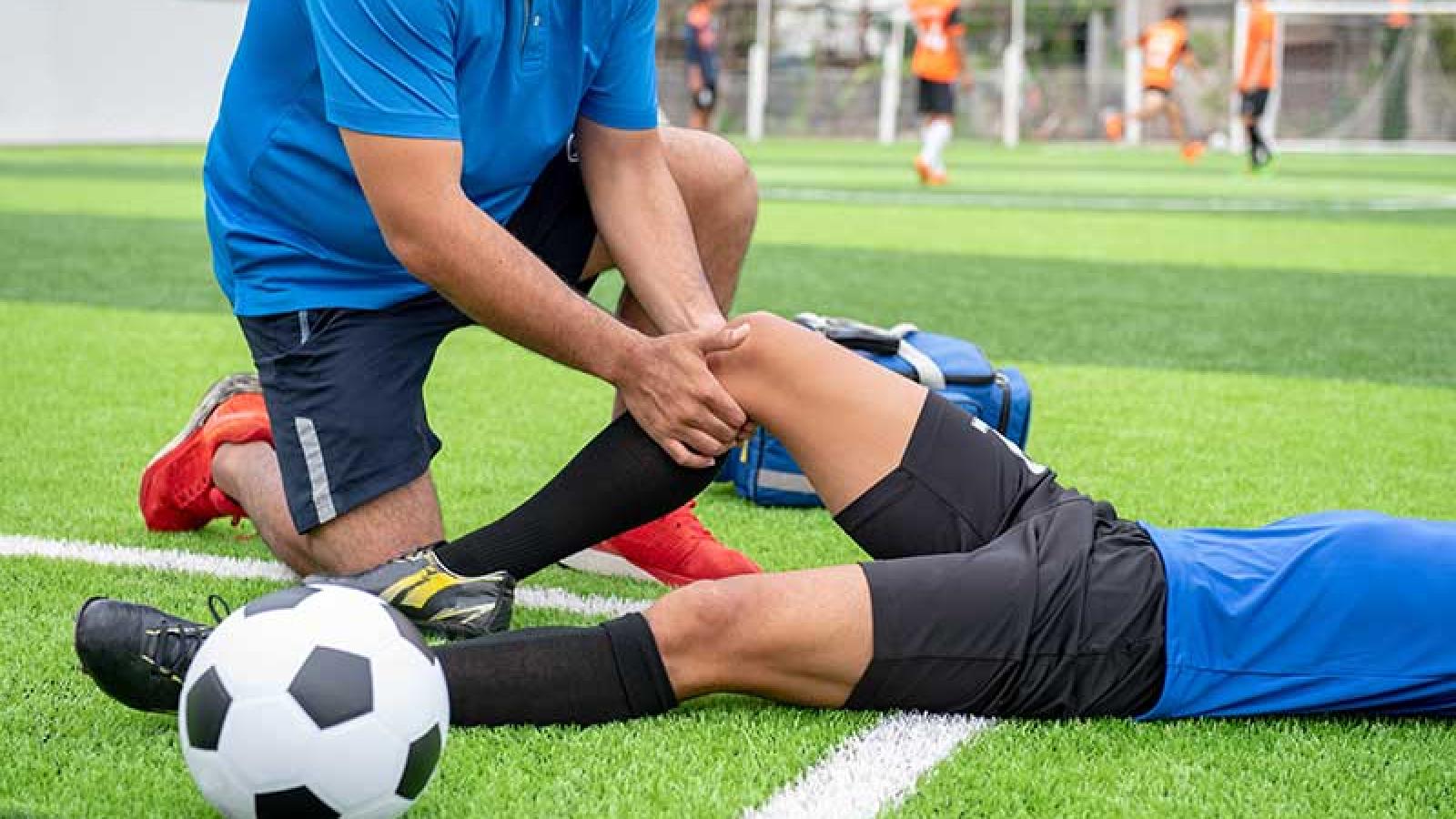These Signs May Mean You Injured Your ACL

If you experience any of these symptoms, it's time to see a doctor.
You're enjoying a pick-up basketball game or a friendly game or soccer and suddenly you feel a popping sensation in your knee. You fall to the ground in pain and don't feel stable enough to get up and continue your activity. Your first thought is "what could I have done to my knee?"
There's a chance you may have injured the anterior cruciate ligament, or ACL. This is one of the major ligaments in your knee and one of the most commonly injured. The ACL helps to keep your knee joint stable so when an injury to this ligament occurs, it makes the knee joint unstable.
ACL injuries most commonly occur during sports that require sudden changes in direction, stopping and starting or jumping. Although these injuries are common in some contact sports, such as football, basketball and soccer, you don't need to come into contact with another player to be injured. In fact, about 80% of ACL tears occur without contact. More often, the athlete suddenly changes direction or quickly stops and then feels their knee give out.
Symptoms of ACL injuries:
- A popping sound or sensation in the knee
- Swelling and inflammation, usually occurring quickly after injury
- Pain (severity can vary depending on the extent of the injury)
- Reduced range of motion in the knee
- Instability when placing weight on the affected leg
- Inability to walk or continue activity
Treatment for ACL Injuries
If you suspect you may have injured your ACL, see a doctor. A medical professional can determine if the ACL is affected by hearing about what caused the injury, doing a physical exam and possible ordering imaging tests.
Depending on the severity of the injury, treatment may include:
- Icing and elevating the knee
- Temporarily staying off the affected leg or using crutches
- Wearing an ace bandage around the knee to reduce swelling
- Taking anti-inflammatory medication
- Using a knee brace to provide added support
- Going to physical therapy to strengthen the muscles around the knee and improve range of motion
- Having surgery – this is a last resort option but may be necessary if your ACL is torn badly, your knee gives out during regular walking or if you're an athlete who wants to resume playing
Sports Medicine at Guthrie
When an injury strikes, we understand how important a fast recovery is to your athlete. That’s why our team of sports medicine caregivers share one common goal – to get our athletes back in the game as quickly and safely as possible.
Our caregivers are equipped to handle a wide variety of sports injuries, offering injury evaluation, concussion management, physical therapy, surgical procedures and more. In addition to the vast network of Guthrie providers across numerous specialties, we can ensure your athlete receives the best care possible, no matter the condition.
Copyright 2019-2022 © Baldwin Publishing, Inc. All rights reserved. Health eCooking® is a registered trademark of Baldwin Publishing, Inc. Cook eKitchen™ is a designated trademark of Baldwin Publishing, Inc. Any duplication or distribution of the information contained herein without the express approval of Baldwin Publishing, Inc. is strictly prohibited.
Date Last Reviewed: August 20, 2019
Editorial Review: Andrea Cohen, Editorial Director, Baldwin Publishing, Inc. Contact Editor
Medical Review: Perry Pitkow, MD
Learn more about Baldwin Publishing Inc. editorial policy, privacy policy, ADA compliance and sponsorship policy.
No information provided by Baldwin Publishing, Inc. in any article is a substitute for medical advice or treatment for any medical condition. Baldwin Publishing, Inc. strongly suggests that you use this information in consultation with your doctor or other health professional. Use or viewing of any Baldwin Publishing, Inc. article signifies your understanding and agreement to the disclaimer and acceptance of these terms of use.

